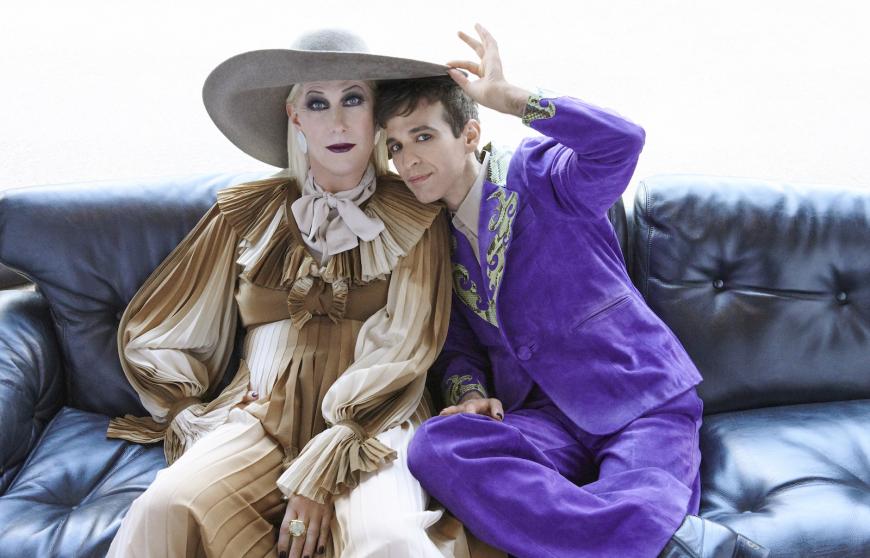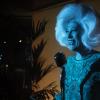
With at least 5.6 percent of Americans now identifying as LGBTQ+, a good old fashioned duo album from proudly fey countertenor/actor/producer Anthony Roth Costanzo and transgender singer/actor/novelist/all-around star Justin Vivian Bond seems, if anything, long overdue. But once you hear Costanzo and Bond’s new Decca Gold recording, Only an Octave Apart, you will likely agree that their divine amalgam of droll with serious, camp with classic, and sing-it-straight with over-the top is anything but overdone. It’s as charming as all get-out.
While the two artists’ gender identities may diverge, their astrological signs and ultimate orientation do not. Costanzo, who has been singing quite a lot at The Metropolitan Opera of late, was born May 8, 1982; the Tony-nominated Bond, who has received GLAAD (2000), Obie (2001), Bessie (2004), Ethyl (2007), and Foundation for Contemporary Arts Grants to Artists (2012) awards, was born May 9, 1963. Whatever you care to make of their Taurus identities, their aesthetic partnership sounds as if destined by the stars.
Costanzo and Bond have been perfecting their act for quite some time. The clip above, from an exclusive Pride Week Opera Party a few years ago sponsored by New York City’s venerable classical radio station, WQXR, gives a hint of what to expect when Costanzo’s high-flying alto meets Bond’s whisky, salt, and cigarettes baritone. Sometimes the results surprise, as when Henry Purcell’s “Dido’s Lament” comingles with Dido Armstrong/Rollo Armstrong/Rick Nowels’ hit “White Flag.” As you’ll hear below, Costanzo, who can sound hooty when he lets out all the stops at the top of his range, is also capable of some exquisite vocalism. In this medley, he finds his lament answered by Bond’s affirmation of love. Then the two artists unite, and what could have been a downer duet finds itself capped by an affirmation that turns the greatest of tragedies into grand camp.
This is but one of 10 tracks on the 12-track album arranged by no less a personage than Nico Muhly. Muhly’s extremely capable lavender hand shows in frequently sly arrangements that integrate synthesizers and programming with an instrumental ensemble that often includes, in addition to violins and violas, viola da gamba, nylon string guitar, piano, and even harp. That everyone except pianist Thomas Bartlett does all hands off on Costanzo’s beautiful, thankfully “straight” rendition of Liszt’s “Über Allen Gipfeln ist Ruh” (Above all peaks there is peace) speaks to the tasteful approach to songs that could have easily been savaged. Which is not to say that, on “Two Charming Fairies (One Charming Night/There Are Faeries at the Bottom of our Garden Medley),” Muhly, Costanzo, and Bond don’t make the most of the song that Beatrice Lillie made one of her calling cards. Costanzo, who knows what lies ahead, is especially sly as he emphasizes Purcell’s repeated words “hundred (lusty days)” and “thousand (several ways).” As for Muhly, the anything but delicate bass line that introduces the piece gives fair warning that the person who enters the garden en pointe may likely be the vocal equivalent of a member of Ballets Trockadero de Monte Carlo.
I expect that a fair number of SFCV readers will content themselves with YouTube’s album excerpts. Having compared them to the 24/48 files you can download or stream from multiple sites, I’ll simply note, as is my wont, that the subtle nuances of these artists’ achievement is far better savored in better sound.
Is more musical exegesis warranted? Are you kidding? Rather than spoil the fun, it’s time to stop reading and start playing.





